After you’ve been researching your family history for sometime, it’s always a good idea to go back and examine your early work. Very often you’ll find that you’ve missed something or you’ve made a mistake. You may even have made assumptions, with no evidence, and recorded them as facts. This post looks at the benefits of revisiting your genealogy research.
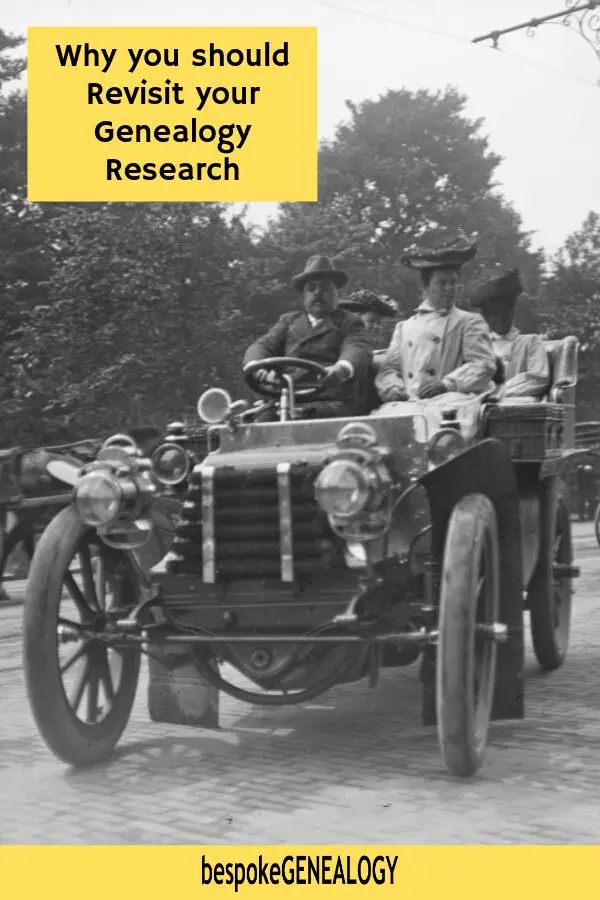
I can remember when I started researching my own family more than ten years ago. The excitement of discovering, for the first time, something that I didn’t know was a great feeling. I wanted to know more, as quickly as possible, so I kept going, just focusing on the direct lines. I didn’t really look at what I was doing and I certainly didn’t keep any sort of research log. Very soon I hit those dreaded “brick walls” far too early.
I eventually learnt to be more systematic and thorough. I went back and looked at my early research and saw that I had missed some key facts and made some glaring errors as well as some unverified assumptions. I corrected these issues and very soon, at least some of, those walls came tumbling down.
So, here is a checklist of things I recommend doing when you revisit your genealogy research, especially your early work:
Have you got all the vital records?
For direct ancestors (grandparents, great grandparents etc) you should try and get civil birth, marriage and death records if available and church baptism, marriage and burial records. Getting copies of the actual records (if possible) is far better than just relying on indexes.
I recommend identifying all the siblings of your direct ancestors and obtaining at least their birth and/or baptism records as well as their marriage records.
Have you extracted all the facts from vital records?
Early church records usually have minimal information on them. Baptism records may only have the date of the baptism, the name of the child, name of the father and usually first name of the mother. Some records don’t name the mother at all.
However, these records can be very inconsistent with some ministers also recording the date of the child’s birth, the maiden surname of the mother and even the occupation and abode of the father. This is why it’s a good idea to find the records of the siblings as additional information may have been recorded.
The same goes for early church marriage records. Usually all that’s recorded is the date of the marriage and the names of the couple. Again, on some records, the minister may have recorded which parishes the couple came from and may even have recorded the names of the couple’s fathers. So, as with baptism records it’s always a good idea to find any marriage records of siblings as these may yield more information.
In the late 18th and early 19th centuries many churches started using pre-printed forms in the registers and recorded a bit more information like the abode of the family and the father’s occupation on baptism records. All this is useful information, and should be recorded. All these facts build up a picture of the family and are useful to cross reference to make sure you are researching the right people.
Civil registration records usually record more information than church records so it’s recommended to get copies, at least for direct ancestors. Depending on which country the records were made, marriage records for example, may record names of both parents and exact addresses.
Have you found all available census records?
Where they exist, census returns are probably the most useful genealogy records available as they’re a snapshot in time, often showing the whole family living together. They give approximate ages of everyone, occupations and places of birth. It is therefore advisable to find all the census records available for your families.
Sometimes you’ll unexpectedly find members of the extended family like grandparents in the household. Later returns tend to record even more useful information. The 1911 English and Welsh census, for example, records the length of time the head of the household and his wife had been married, the number of children that they’d had and the number still living. This is very helpful for making sure that you find all the birth records for their children, as some of them may have been born and died between census years.
Have you found other documents?
I’m a big fan of researching each generation thoroughly before moving on to the next. That means finding all possible documents available for everyone, especially direct ancestors. Documents to look out for (where available) should include:
- Wills and Probate records
- Migration records
- Electoral Lists
- Monumental Inscriptions
- Land records
- Local Directories
- Newspapers
Have you checked for mistakes?
I’ve found that it’s very easy to make mistakes in genealogy. I’ve certainly made a few over the years. However, I try to minimize them or eliminate them completely by looking for more than one record to verify a fact.
Transcription errors are one of the main causes of mistakes. Sometimes a name or a place has been wrongly transcribed. I have a census record, for example, where a Francis Lodge was listed as the brother-in-law of the head of the household. However he had been transcribed on Ancestry as his mother-in-law. This led to a brick wall until I checked the actual document and discovered the mistake.
Mistakes can easily be made by accepting hints on Ancestry or the other sites without thoroughly checking them to see if they make sense. I have seen so many trees on Ancestry that have obvious mistakes on them that were probably the result of someone accepting an incorrect hint.
And, just because you can’t find a record on Ancestry doesn’t mean it doesn’t exist. Ancestry does not have a monopoly on all genealogy records. It is always advisable to check other database sites if you can’t find a record you’re looking for.
Are you keeping a research log?
Finally, if you are not already doing so, I would recommend keeping a research log. Writing down and dating where you looked for documents, what you looked at etc. This stops you going round in circles and repeating the work that you’ve already done. Also, when you revisit your early work, you can see where you researched, making it easier to check.
If you haven’t signed up for Bespoke Genealogy updates, I recommend that you do as you can access a free research log template. See the top of the page to subscribe.
For more on this topic see: Stop making these Family History Mistakes
Happy researching!
Please pin a pin to Pinterest:

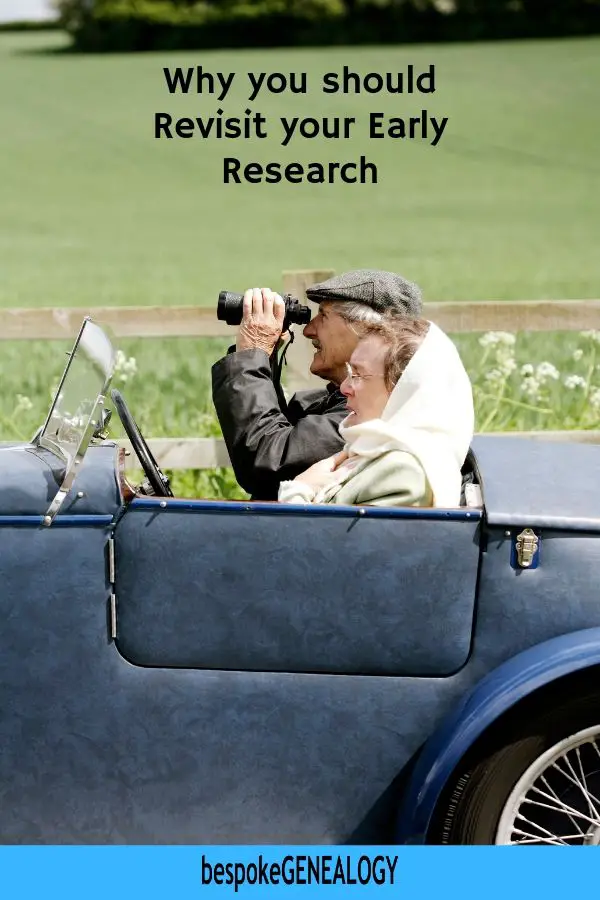
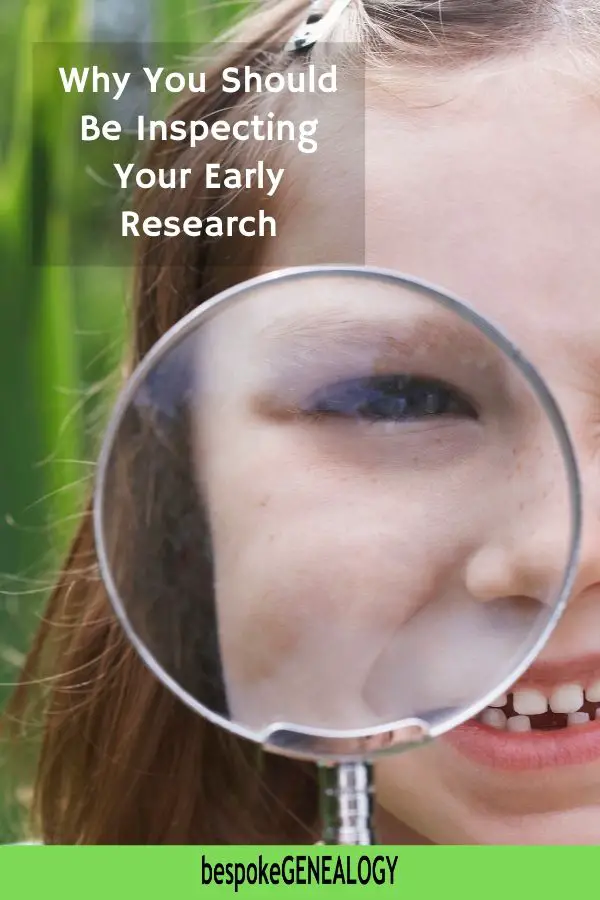
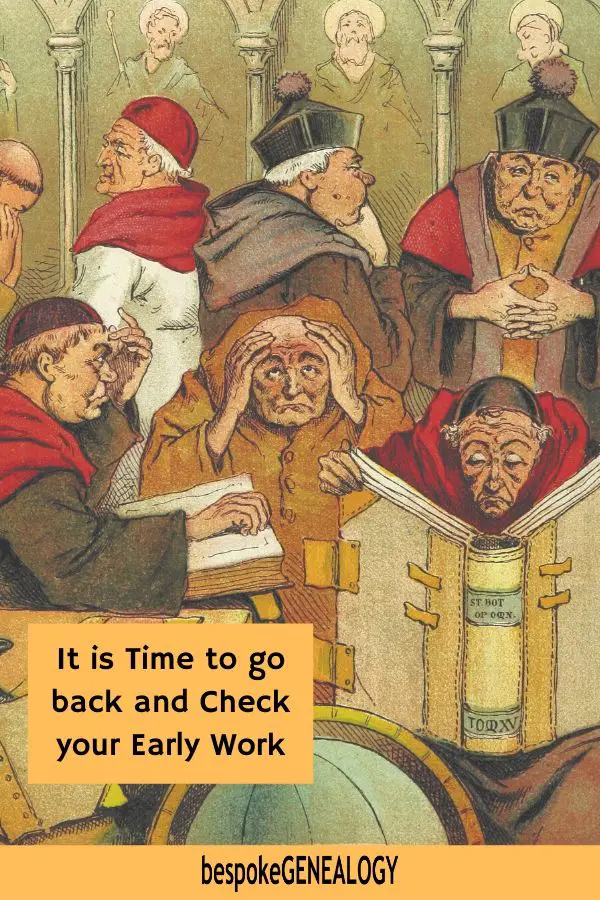



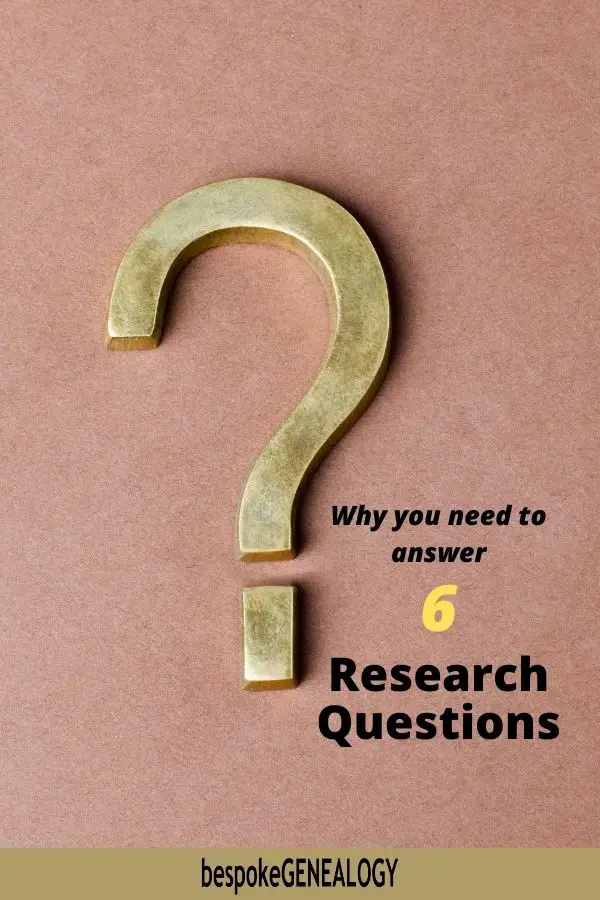

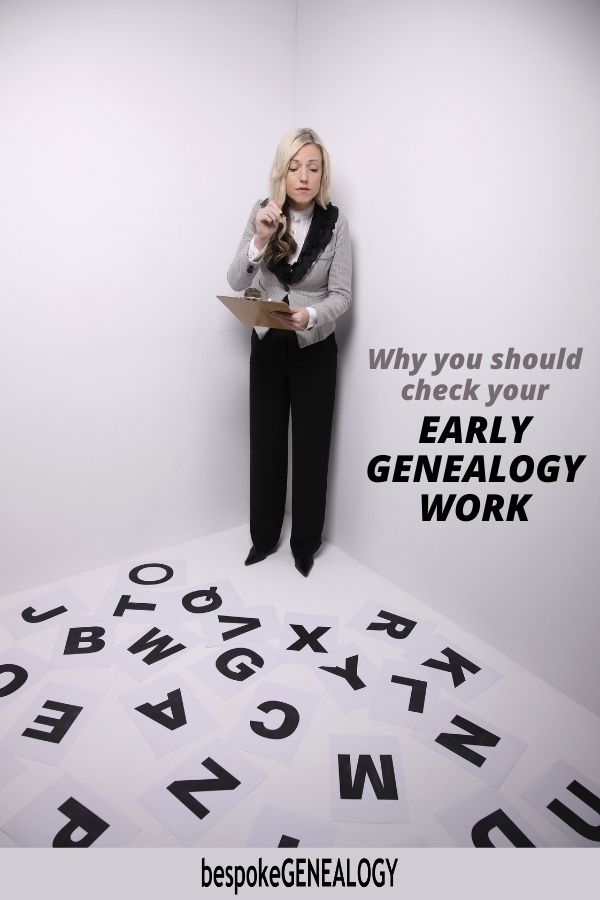

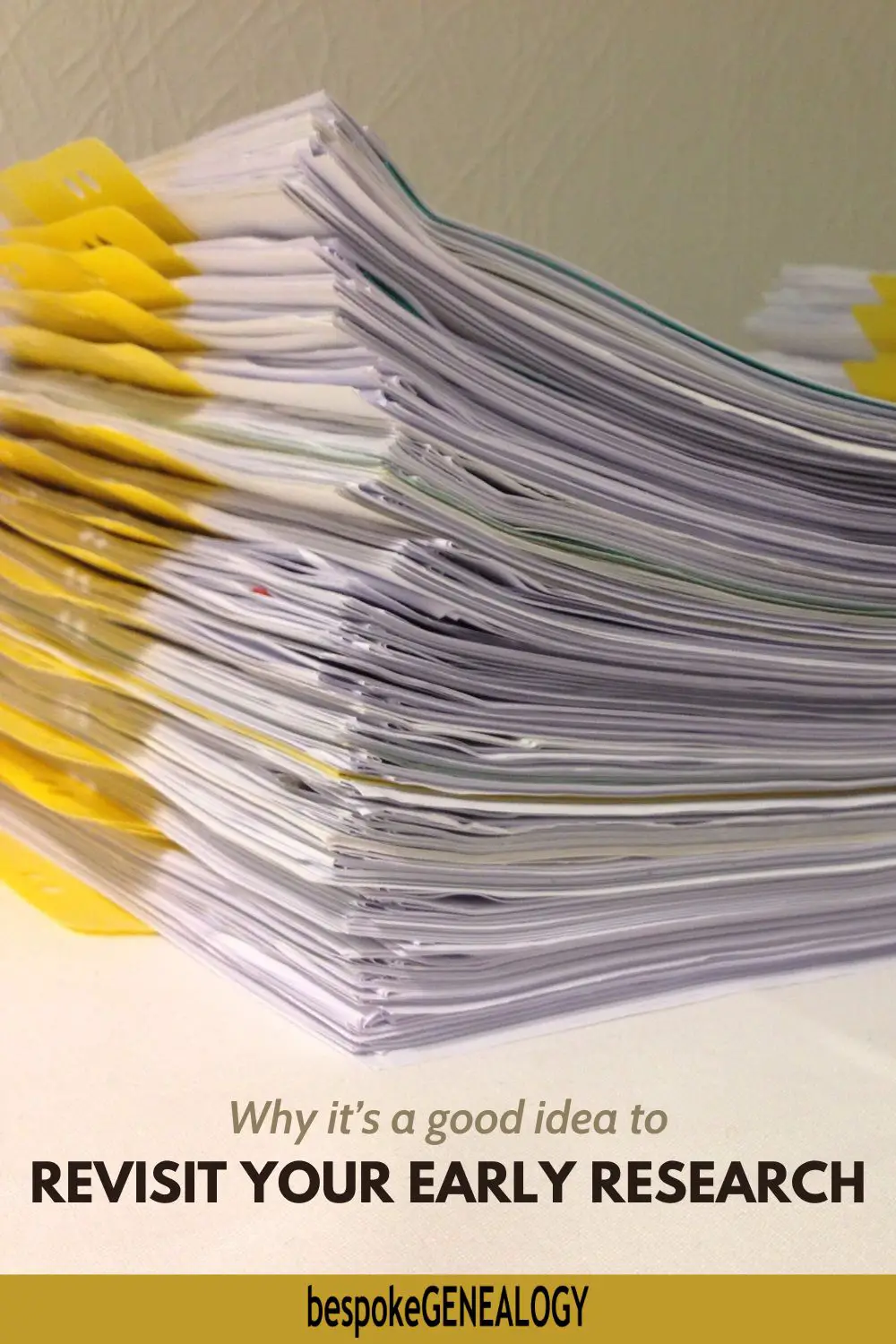

Leave A Comment